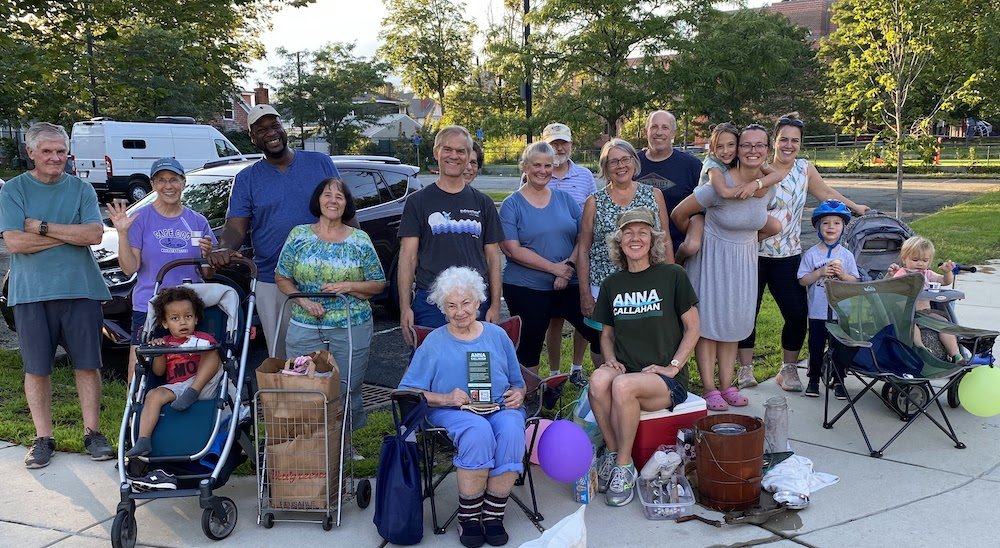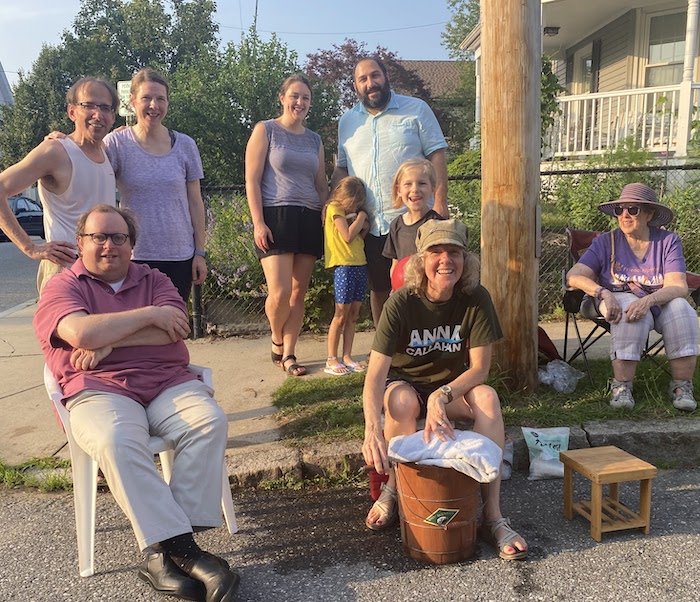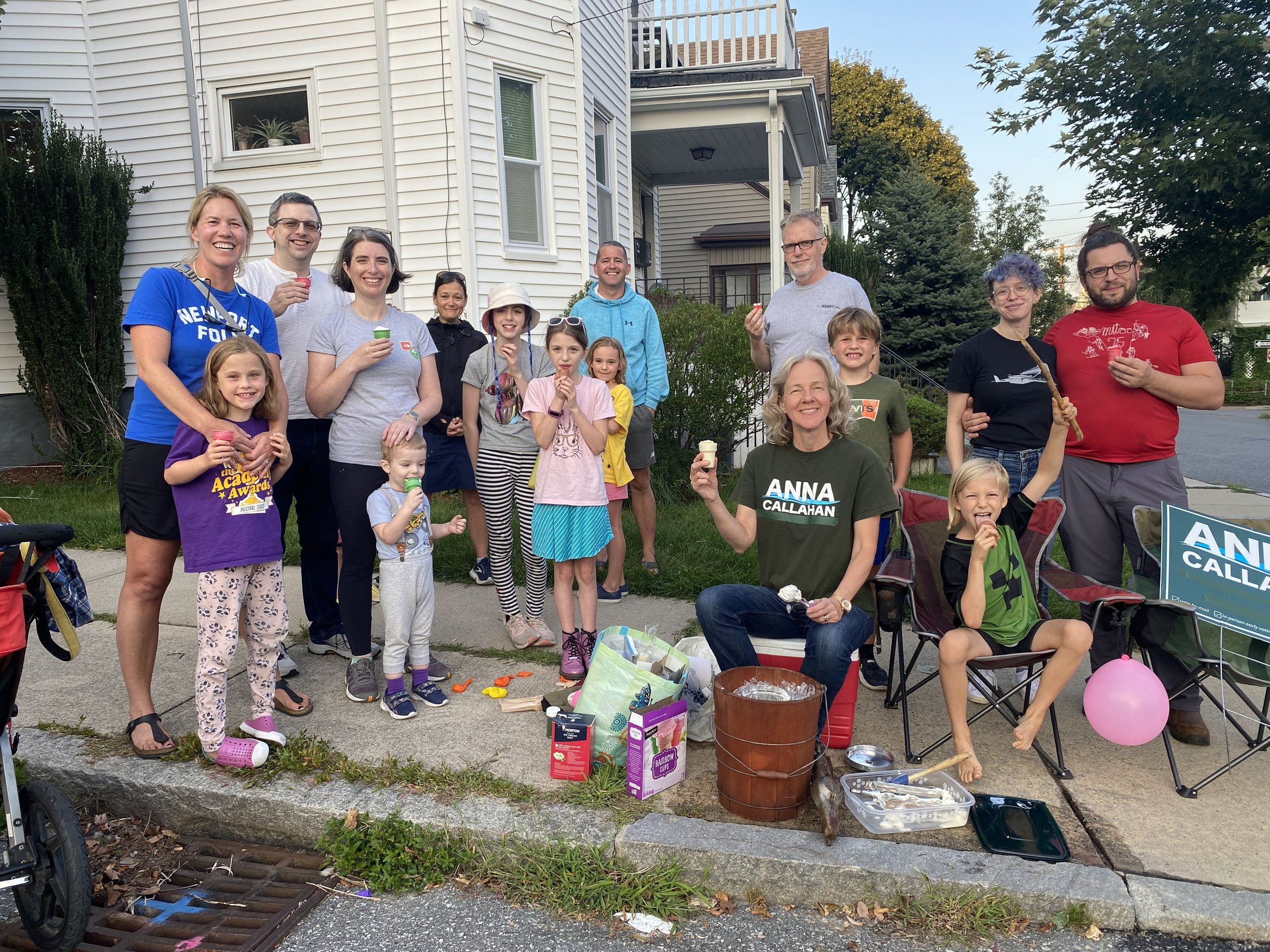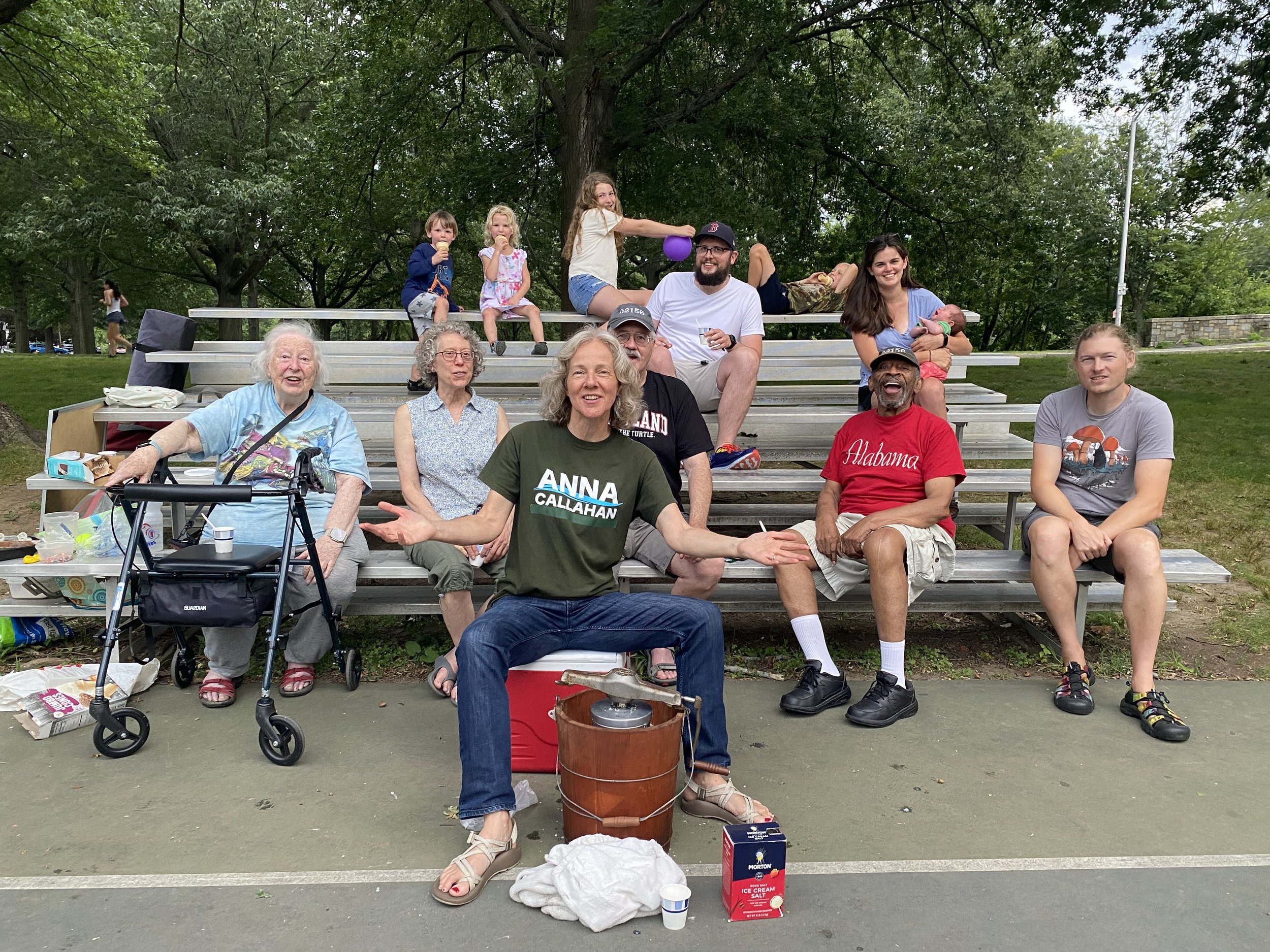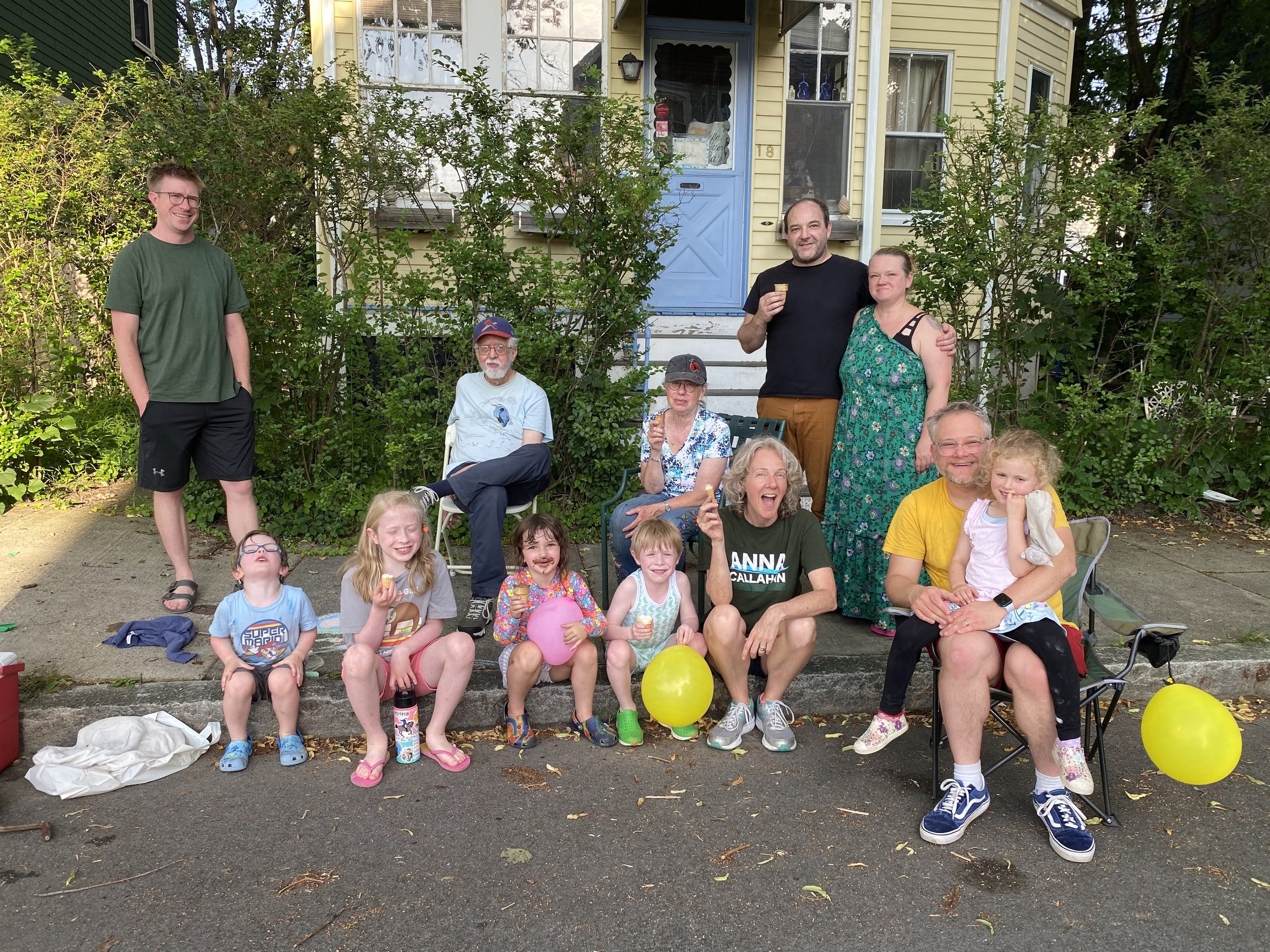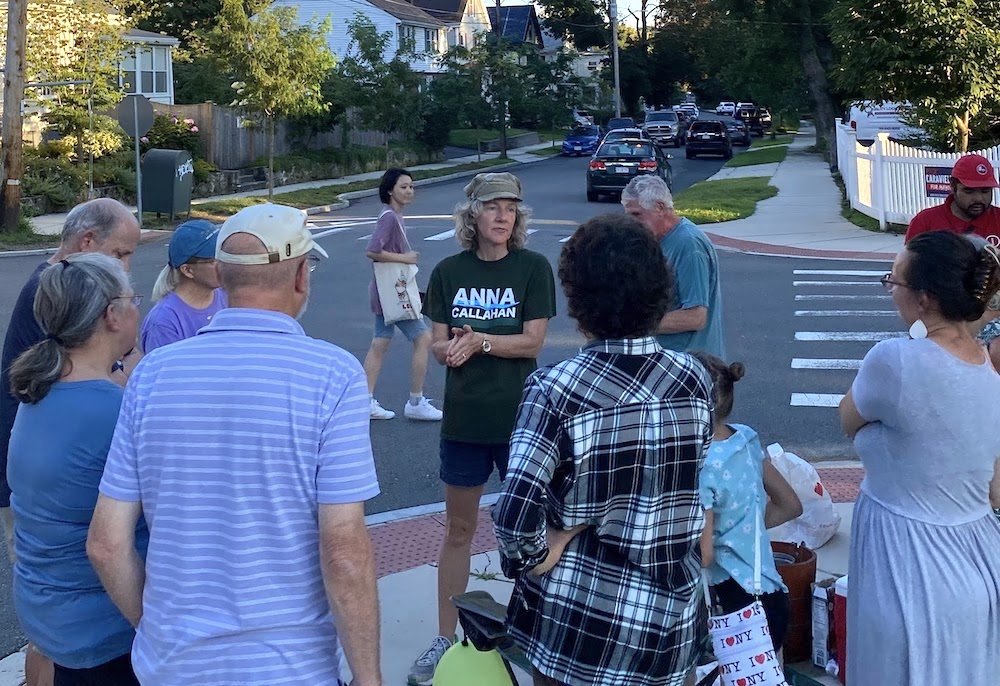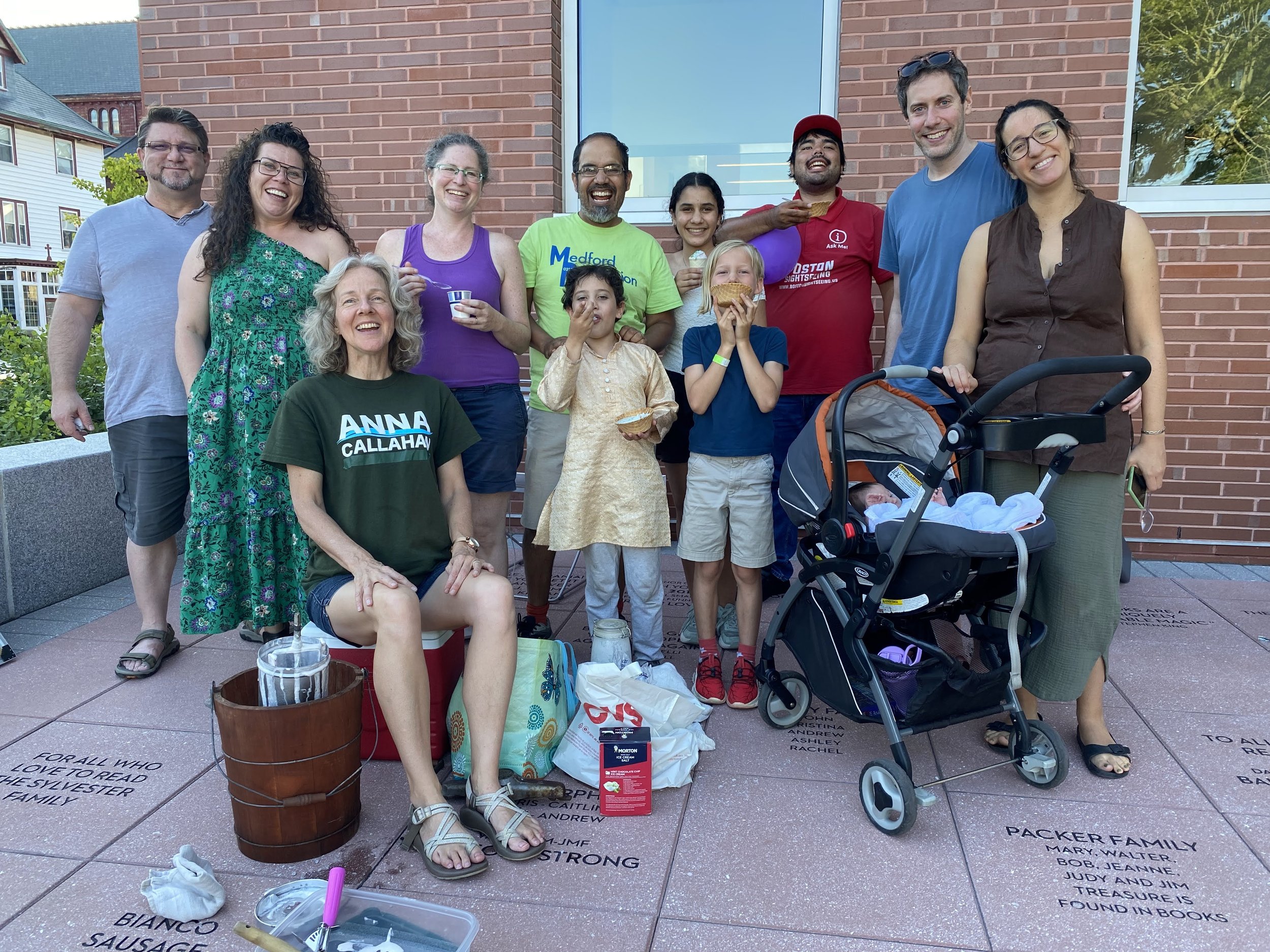Revitalizing Democracy
Since 2016, I’ve spent a lot of time studying democracy — what makes it tick, what are the indicators of a democracy in crisis, and how it can be revitalized. As I traveled the country meeting organizers, city councilors, and mayors in other states, I began to understand that there is a very important role that elected officials can play. I believe the most important job of any elected official is to engage people in our democracy.
As a city councilor, I will prioritize spending time in the community. Since I will have just spent five months talking to about 11,000 people in Medford who vote regularly in city elections, I’ll focus on everybody else. The best way to engage people is by facilitating group discussions that are in some ways like “reverse town halls.”
In a normal town hall, the elected official chooses a location that is comfortable for them and at the event is considered the expert. Attendees ask them questions and they answer. A “reverse town hall” is held at a location that is comfortable for a specific group of people — their church, college, kids’ school, union hall, neighbor’s house, etc. And the elected is there to ask questions and listen. What are their lives like? What are their concerns? What solutions do they want?
Often when a community has a concern, they’ve already come up with solutions, and sometimes they’ve gone through the process of discussing and debating different solutions to finalize something that works for them all. I’ll give an example. There is a group of elderly neighbors who would like to sell their houses…but they want to live near each other. They have come up with a solution — they would love it if there were a mixed-income apartment building where seniors could live on the first floor. They would like a small amount of communal space — a little kitchen and a dining room that could seat maybe 20 people.
This is the kind of idea that would probably never surface through consultants or Requests for Proposals from developers. But if we built it, not only would these seniors have their preferred next step of their lives with their community intact — it would also free up a bunch of housing in Medford.
It’s important to not just listen, but to help people make their solutions happen. In many cases, city government doesn’t even have to get involved. Someone feels that they are in a food desert where it’s too far to walk to get fresh produce? Neighbors can get together to request a CSA dropoff site. One kid at the doors asked if we can have “lemonade stand days” where residents are texted the day before any over-85 degree day: “Kids: prepare your lemonade stands. Grownups: put cash in your pockets. Tomorrow is Medford Lemonade Stand Day!” These ideas can be accomplished by connecting people with each other and with the resources they need to make their ideas happen. And when city action is needed, the elected official can champion that endeavor.
When electeds meet regularly with residents to facilitate these conversations, it moves everyone up the ladder of democracy.
People begin to get engaged in their own or their neighbor’s ideas. They see their elected official as someone who listens to them and helps them reach their goals. Non-voters begin voting, occasional voters vote more frequently, more people become regularly engaged in community groups as activists.
How does an elected official have time to do this? The reasons I hear from city councilors across the country for why they don’t do this is that they are too busy reading and writing legislation. Given that our city councilors are only paid $29,000 per year (half time at best), how does one find the time?
I was a software engineer for many years. One thing you learn is that younger engineers always want to write their own code, while more seasoned engineers understand the pitfalls. Home-grown code leads to brittle code that takes fewer edge cases into account and is dependent on the original writer to maintain. It’s better to use existing solutions, whether open source or provided as a service when you can. The same is true with elected officials. Less experienced electeds want to write all their own legislation. Not only does it take many times longer (it can be a steep learning curve) but it is much more likely to be caught up for months in technicalities or to be struck down or hit with a lawsuit later.
Through my statewide work I have a lot of connections to organizations, city councilors, and lawyers across the state that can make this process faster and less risky for our entire city council. In addition, I plan to have a “legislative team” of volunteers who help with this process as well (in the way that the volunteers from Trees Medford researched many other cities’ tree ordinances). This moves these already engaged folk up the ladder of democracy as well.
I facilitated conversations in dozens of cities across the country, and I loved every minute of it. I can’t wait to have the opportunity to do this in our own community, and I hope you’ll join me in revitalizing democracy from the ground up.
